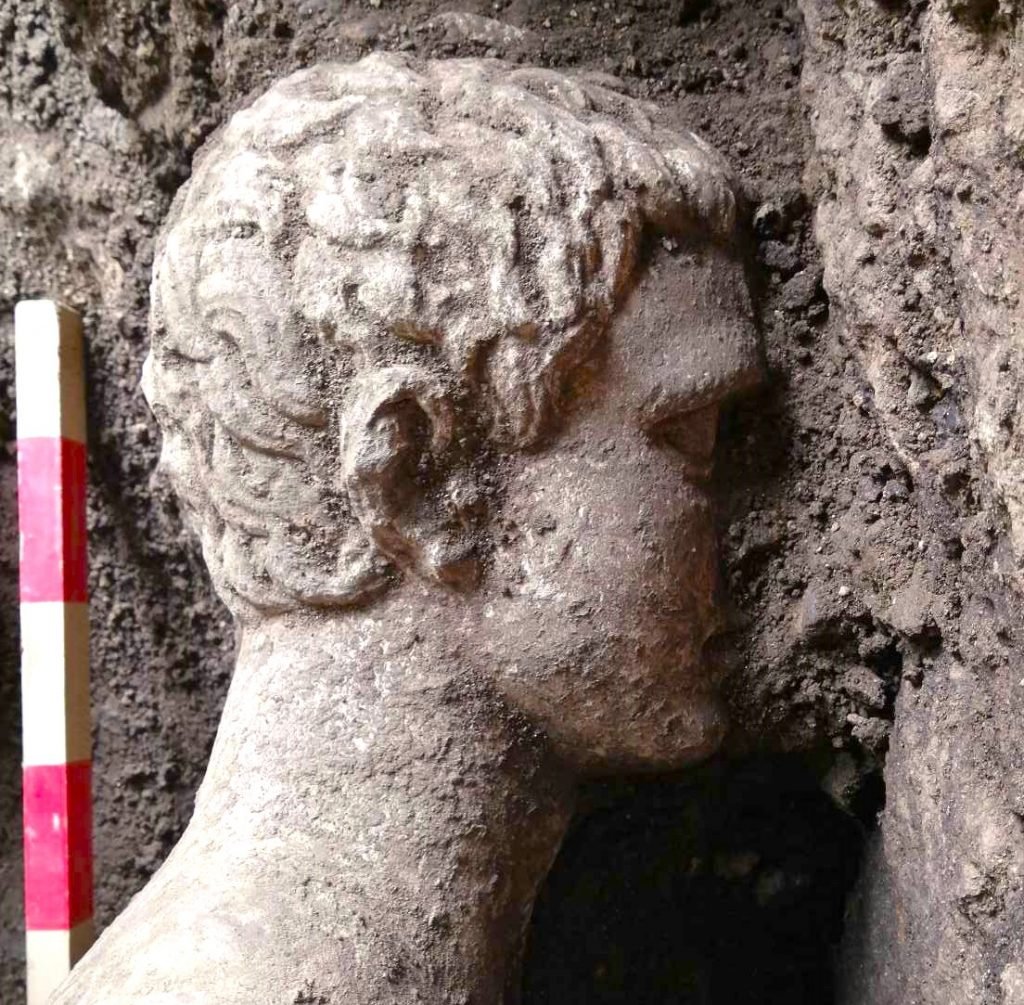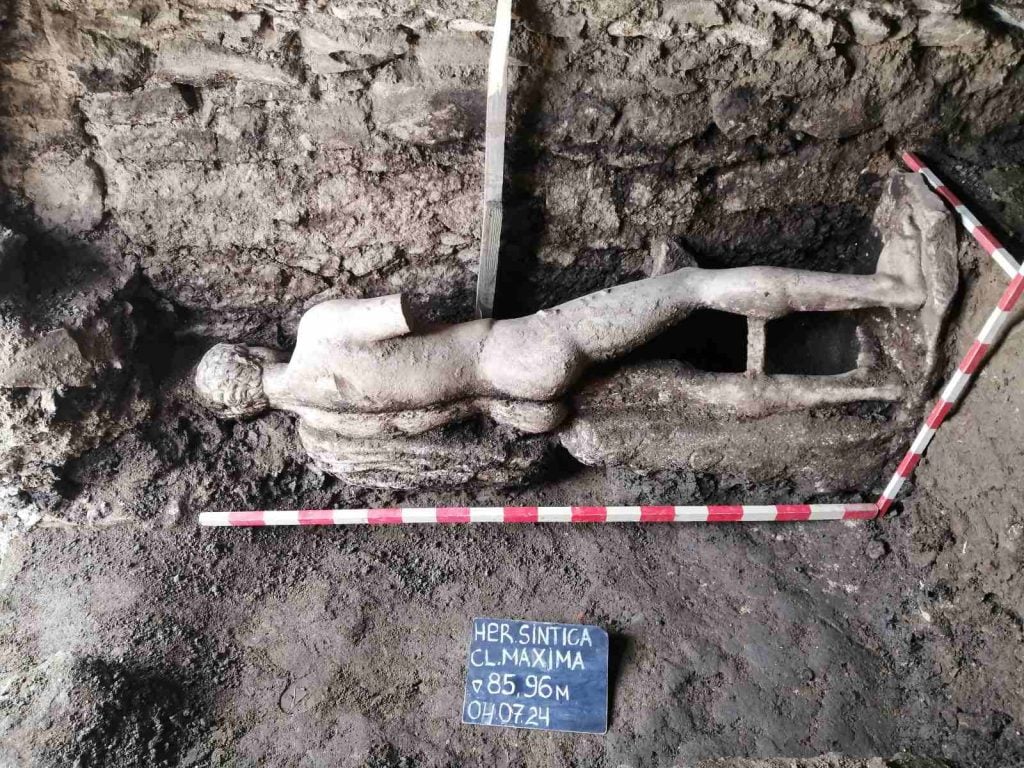Archaeology & History
A Marble God Is Found in an Ancient Roman Sewer
The shock discovery sheds new light on the preservation of Pagan culture under Christian rule.

Archaeologists in Bulgaria have accidentally stumbled across a marble statue of the Greek god Hermes in what seems like the most unlikely of places: an sewer in the ancient city of Heraclea Sintica. It is rare to find such large sculptures intact, but thanks to its unusual hiding place, where it was kept under layers of soil, the 6.8-foot figure managed to survive for centuries in near perfect condition.
How did this artistic treasure end up in a sewer? The archaeologists believe it must have been put there for safekeeping some time after 388 A.D., when the city’s infrastructure was devastated by an earthquake and the sewer became disused. By that time, Paganism had been replaced by Christianity as the official religion of the Roman Empire. However, it seems there were some citizens of the city who were keen to preserve their idols, which were otherwise at risk of being destroyed.
“Everything pagan was forbidden, and they have joined the new ideology, but apparently they took care of their old deities,” Lyudmil Vagalinski told Reuters of the statue’s one-time owners. The professor is associated with the National Archaeological Museum in Bulgaria and leading the excavation.

Marble statue the Greek god Hermes discovered in sewer at ancient town of Heraclea Sintica. Photo: Archaeologica Bulgarica.
The statue is in impressive condition, although it is missing its right arm and there are a few fractures on the left hand. Once it is fully excavated, it will be scientifically analyzed to determine its date before going on display at the local history museum.
The city of Heraclea Sintica was founded by the ancient Macedonian king Philip II around 350 B.C. It is now part of the Bulgarian village of Rupite in the region of Pirin Macedonia, near the Greek border, and has been subject to archaeological excavations since 2007.
Amazingly, this is not the first time an ancient statue has been found buried in a sewer. In early 2023, it was announced that construction workers in Rome stumbled across a mysterious marble statue that is believed to depict the Greek hero Hercules. They had been restoring an old pipeline along the city’s Appian Way, an ancient road.





